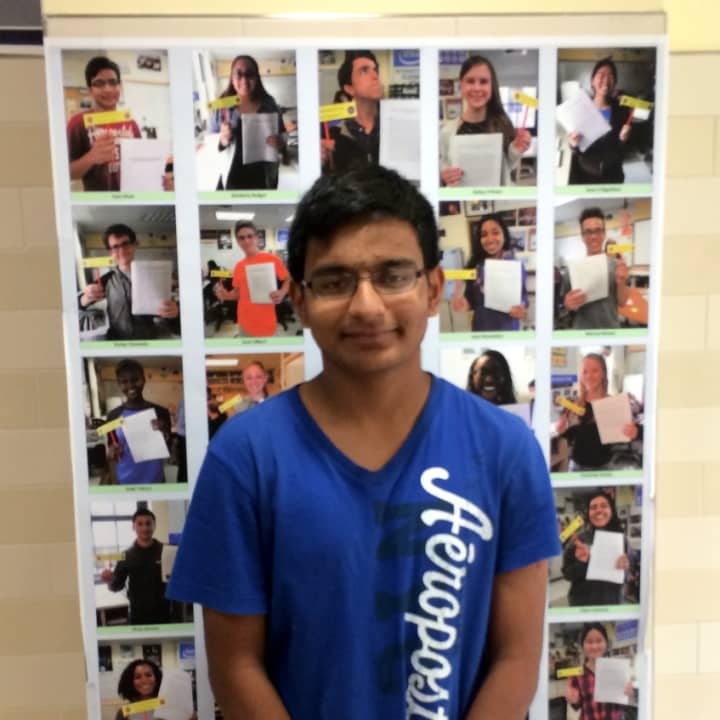Yasir was one of 466 semifinalists recognized on October 16 for exceptional research. The Siemens Foundation received more than 1,700 submissions for the competition. For his project in OHS’s Fundamentals of Science Research Program, Yasir is investigating babesiosis disease, which is similar to malaria. There is no method of screening for the parasite that has been approved by the U.S. Food and Drug Administration, and his research is focused on developing the tools necessary to create such a method.
Yasir said his interest in this kind of research was prompted by the death of his grandfather in India after his body had been weakened by malaria. Yasir’s mentor, Dana Mordue at New York Medical College, encouraged him to undertake research in babesiosis, which is a disease that is common but not well known, Yasir said. Mordue teaches microbiology and immunology at the Valhalla college.
“Once my grandmother told me that if my grandfather were alive, he would just be really proud of you and just be amazed by all the work that you’ve done,” said Yasir, who has a sister in ninth grade and another in third grade. “Every day when I’m doing this research I think of him.” Yasir started his research project in January 2014 and has gone consistently to New York Medical College on weekends and for six or seven hours a day during the summer.
The research involves developing an enzyme-linked immunosorbent assay, which is a technique used to test whether a sample has any antigens or antibodies present. The enzyme-linked immunosorbent assay requires antibody pairs to recognize antigens present in a blood sample, according to Yasir. This is in order to see if the blood has the parasite that causes babesiosis – Babesia microti – and prevent the transmission of the disease, he said. Something novel that Yasir’s research has found is the antibodies the lab created from a human blood sample in 1971 were reactive when tested with a newer infection.
The sample was from a Nantucket, Massachusetts, patient. Babesiosis disease is also transmitted by tick, Yasir said. If someone with the parasite donates blood and the blood goes to an elderly person, there is a risk the patient could develop organ failure and die. That’s why it’s so important to developing a screening method, he said.
Yasir said he loves conducting research and plans to continue his work on babesiosis disease through next summer. “I’m thinking of pursuing a career in research or something in the sciences,” he said.
OHS science teacher Angelo Piccirillo said the Science Research Program is “ecstatic” that Yasir was chosen as a semifinalist. About 25 students from OHS entered the competition. “Yasir is a model student. He goes well above and beyond what we ask him to do,” Piccirillo said.
Yasir said it feels “amazing” that he was the only student at OHS to be chosen as a semifinalist. “It’s just an honor to be recognized for this research,” he said.
Click here to follow Daily Voice Ossining and receive free news updates.


